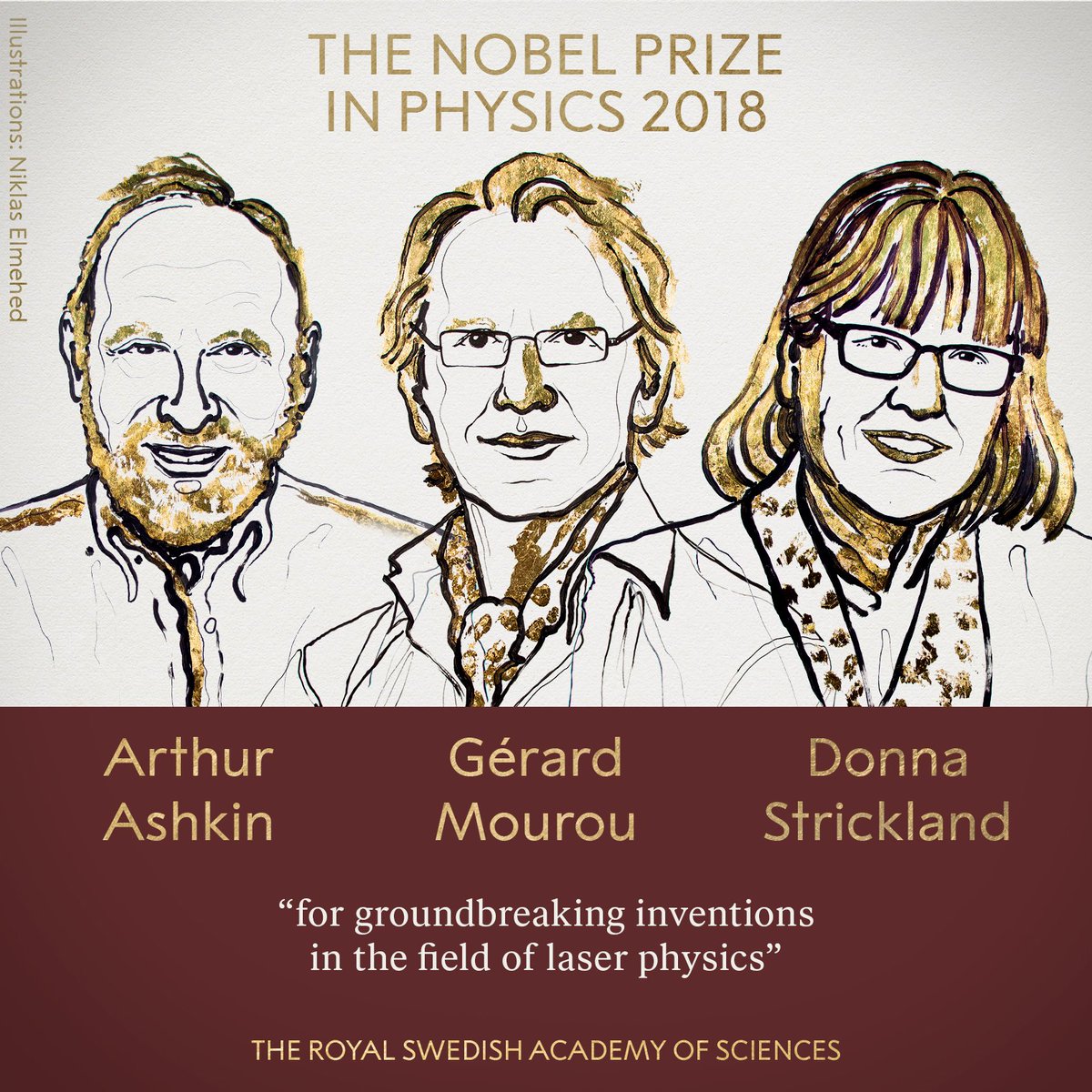

"for their discovery of superfluidity in helium-3" "for development of methods to cool and trap atoms with laser light" "for basic work on information and communication technology" "for pioneering contributions to the theory of superconductors and superfluids" "for the discovery of asymptotic freedom in the theory of the strong interaction" "for his contribution to the quantum theory of optical coherence" "for the discovery of the accelerating expansion of the Universe through observations of distant supernovae" "for ground-breaking experimental methods that enable measuring and manipulation of individual quantum systems" "for the theoretical discovery of a mechanism that contributes to our understanding of the origin of mass of subatomic particles, and which recently was confirmed through the discovery of the predicted fundamental particle, by the ATLAS and CMS experiments" "for theoretical discoveries of topological phase transitions and topological phases of matter" "for decisive contributions to the LIGO detector and the observation of gravitational waves" for the optical tweezers and their application to biological systems." "for groundbreaking inventions in the field of laser physics. “One has to hope that somewhere there’ll be new measurements to be made and that they will open up new vistas for us theorists to play with.To re-sort the Table, click a column header. In a 1984 interview published by the American Institute of Physics, Peebles described the mentality needed when investigating questions as vast and seemingly intractable as uncovering the building blocks of the universe. Born in Winnipeg, Canada, in 1935, he is now the Albert Einstein Professor Emeritus of Science at Princeton University. The AAAS Council elected Peebles a Fellow in 1991. What is the universe made of? … And are we alone?” “WFIRST is seeking to answer some of the biggest questions in all of science,” said Rhodes. Building on the groundwork laid by this year’s Nobel laureates, WFIRST will use state-of-the-art technology to map the universe’s dark matter and dark energy and uncover thousands more exoplanets. In an October 2018 lecture at AAAS, NASA cosmologist Jason Rhodes detailed the scientific priorities of the space agency’s Wide Field Infrared Survey Telescope (WFIRST), a flagship mission set for launch in 2025. The finding “started a revolution in astronomy, and over 4,000 exoplanets have since been found in the Milky Way,” said the Nobel announcement. Mayor and Didier’s discovery of planet 51 Pegasi b, a gaseous ball comparable to Jupiter, provided hope in humanity’s quest to find potentially life-sustaining planets outside of our solar system.

| Niklas Elmehed/© Nobel Mediaīeginning in the mid-1960s, Peebles developed a theoretical framework that, according to the Nobel announcement, “is the basis of our contemporary ideas about the universe.” We now know that ordinary matter makes up less than 5% of the universe, with dark matter and dark energy occupying the remaining space. Peebles' work deepened our understanding of the universe's structure and history. Though Albert Einstein hypothesized in 1917 the existence of what we now call dark matter - a component of the universe that neither gives off nor absorbs light - it would be decades before Peebles and other researchers uncovered its presence. Shortly after the Big Bang, nearly 14 billion years ago, the universe became transparent to light, which is responsible for all that we can see, including planets and stars. Their discoveries have forever changed our conceptions of the world.” “While James Peebles’ theoretical discoveries contributed to our understanding of how the universe evolved after the Big Bang, Michel Mayor and Didier Queloz explored our cosmic neighborhoods on the hunt for unknown planets. “This year’s Laureates have transformed our ideas about the cosmos,” the Nobel committee said in its announcement. Together, Mayor and Queloz made the first discovery of an exoplanet - a planet outside our solar system - orbiting a sun-like star. Peebles’ five decades of contributions to physical cosmology theory have increased our understanding of the universe’s structure and history. James Peebles, a cosmologist and elected Fellow of the American Association for the Advancement of Science, has received the 2019 Nobel Prize in Physics along with astronomers Michel Mayor and Didier Queloz “for contributions to our understanding of the evolution of the universe and Earth’s place in the cosmos,” the Nobel committee announced Tuesday.


 0 kommentar(er)
0 kommentar(er)
